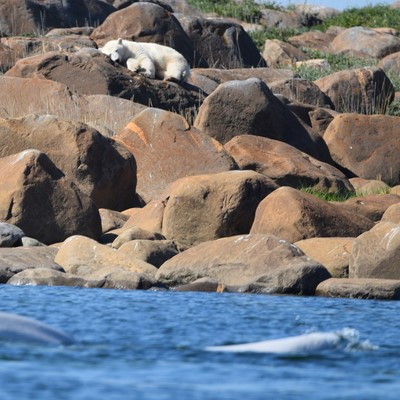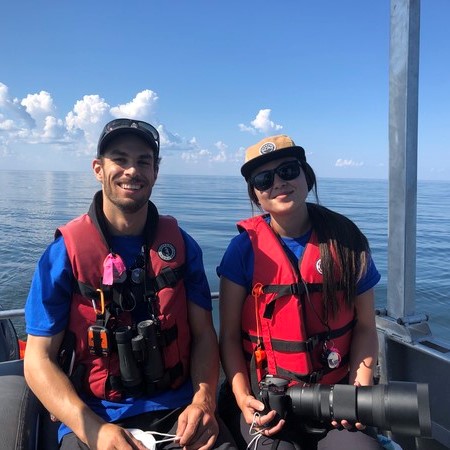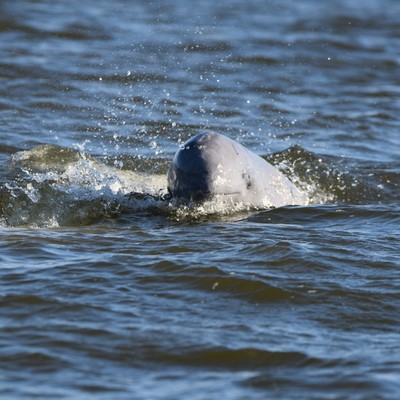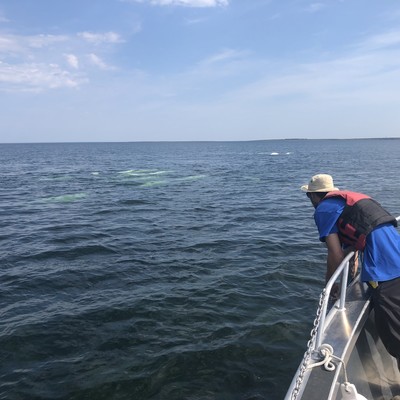Thousands of beluga whales gather in the Churchill River estuary every summer, providing a unique opportunity to study and monitor them and their ecosystem.
In collaboration with Polar Bears International and Explore.org, each summer the Beluga Boat slowly travels up and down the estuary with an underwater camera attached underneath. This footage is live-streamed on Explore.org. Members of our Research and Conservation team spend time on the Beluga Boat collecting the underwater video footage and additional data. The video footage is used to create the images uploaded to our Beluga Bits Zooniverse site for analysis by citizen scientists like you!




Our researchers also collect above-water images of beluga, focusing on those with unique scars and markings, to be matched to the underwater photos.
This year, our team also conducted behavioural observations of groups that approached the boat! They documented three key pieces of information:
1. How many individuals were in the group? This is harder than you might think as belugas can be submerged for upwards of ten minutes!
2. Group membership – if the group is made up of all adults, adults and juveniles, adults with calves, etc.
3. How long the group followed the boat?
This information helps our team better interpret underwater images. For example, if there are 10 photos of beluga over 10 minutes, is it the same group of belugas, or different groups that have come and gone?
In addition, the team collected 360-degree underwater video which allows them to better capture images of distinct scars and marks as the whales move around the boat.
Beluga whales are an intrinsic part of northern ecosystems and way of life. We can ensure they remain for future generations by using Beluga Bits to improve our understanding of their populations, connecting people to Arctic research, and inspiring stewardship over ocean health. This is especially important as Arctic species and ecosystems are facing a variety of threats and challenges, including the uncertainty of a changing climate and related impacts to sea ice extent, increased shipping opportunities, and changes in prey abundance and distribution.
Click here to learn more about Beluga Bits and get involved!





